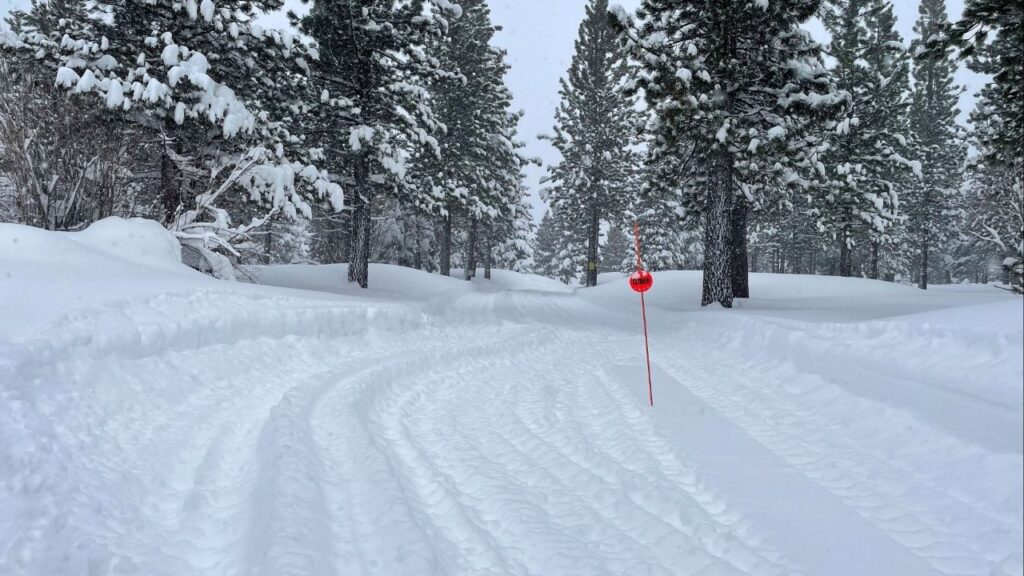Share
For more than a decade, the State Water Contractors have heavily invested in scientific research to learn more about the Bay-Delta ecosystem and the endangered species that call it home.
Much of this investment worked to resolve lingering questions surrounding permits issued in 2008 and 2009 for the long-term operation of the State Water Project and Federal Central Valley Project. Having spent $50 million annually this past decade, we now better understand how water operations affect the Delta ecosystem. And with that understanding we can operate the statewide water system to achieve the co-equal goals of providing safe and reliable water supplies while protecting and restoring the environment.

Opinion
Jennifer Pierre
Special to CALmatters
For us, better science is the only path that can achieve those two important goals.
Unfortunately, as the state completed its new permitting effort at the end of March, a decade of research was largely ignored in favor of political objectives that impose unjustified restrictions on the State Water Project and offer no opportunity to manage water supplies for the benefit of the environment, 27 million people, 750,000 acres of agricultural land or the California economy.
In fact, the permit issued by the California Department of Fish and Wildlife will make it substantially more difficult to manage water resources in the face of climate change, mega droughts and new state groundwater management rules.
Diverse Interest Groups Came to the Table
California needs to make foundational investments to ensure our water infrastructure is operating with the flexibility and capacity to provide the maximum benefit for our residents, farms and environment.
The March 31 Incidental Take Permit issued by the Department of Fish and Wildlife for the long-term operation of the State Water Project includes requirements that are contrary to what years of research has shown us. The permit also halts years of work to develop a Voluntary Agreement to update the Bay-Delta Water Quality Control Plan – an effort that sought to provide more water and habitat for the environment while protecting the water rights of public water agencies.
In that process, diverse interest groups came to the table to develop substantial new instream and Delta outflow criteria, a robust collaborative science program spanning the Delta watershed, funding to purchase water and construct habitat, and an ability to test hypotheses to further our understanding of how flows and landscapes interact to benefit fish.
The historic agreement would have brought together nearly all of the state’s water users, some conservation groups, and the state and federal government to share in the implementation responsibilities. It represented our best hope of working together to achieve a better outcome.
The Latest Turn of Events Is Disappointing
Under the Voluntary Agreement process, costs and water supply impacts would have been shared among many parties. Instead, the Incidental Take Permit burdens only the State Water Project ratepayers with costly measures unrelated to the impacts of its operations while reducing water supplies.
The latest turn of events is disappointing, to say the least. Interrupting the Voluntary Agreement process is an unfortunate choice by the Newsom administration that pushes stakeholders away from collaboration and back toward conflict and litigation.
While the state permit fails to acknowledge the scientific advancements achieved over the past decade, we will continue supporting efforts that enhance our knowledge, create collaborative venues to test and refine hypotheses, and adjust operations and actions based on the best available science. Because the Incidental Take Permit does not represent these values, the State Water Contractors and its member agencies have been left with no choice but to challenge the state’s permit.
About the Author
Jennifer Pierre is the general manager of the State Water Contractors, a nonprofit association that purchases water under contract from the California State Water Project, JPierre@swc.org. She wrote this commentary for CalMatters, a public interest journalism venture committed to explaining how California’s Capitol works and why it matters.
RELATED TOPICS:
Categories

Epstein Files Hint at His Ties to the Supermodel Naomi Campbell


















